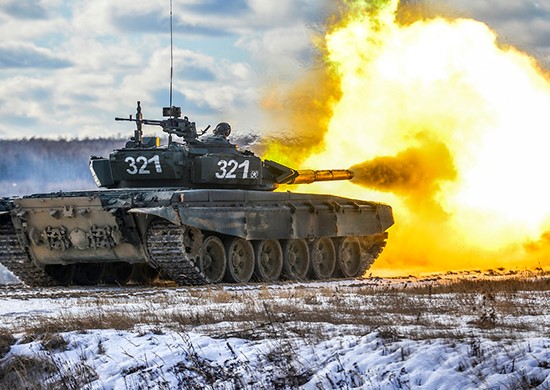Reports coming in from Ukraine and Eastern Europe speculate that Russia is not withdrawing its forces but rather refreshing them with Russian troops stationed in other regions. Eyewitnesses in Abkhazia, a Russian occupied area of Georgia with a population of about 245,000, recorded the mass exodus of much of Putin’s army and military hardware this week. Soldiers also were seen departing via rail from the city of Gagra. Russia also has occupied South Ossetia, Georgia, a territory with a population of 53,000 since 2008. “Some of the first evidence of the redeployment of forces from the 4th Military Base in South Ossetia to Ukraine came on March 16, causing local political unease,” according to Zaal Anjaparidze of the Jamestown Foundation.
Political analysts specializing in Georgian affairs in Washington now are suggesting that, given Putin’s hefty military losses in Ukraine, other former Soviet satellites may consider this an opportune time to rebel against Russian occupying forces. One senior military analyst in Washington said a Russian defeat in Ukraine could buttress a push for full rebellion against undue influence from Moscow in the internal affairs of other East European states and result in a “domino-like” effect in which former satellites move closer to the West.
“The temptation to exploit this momentum carries significant risks for militarily under-resourced Georgia that will need to be carefully considered to avoid the tragic mistakes made in the past,” noted Anjaparidze. Although Medvedev was president of Russia at the time of the Georgia invasion, Putin orchestrated the operation and completed it in five days. Due to constitutional restrictions on succession, Putin had stepped down for one term but was serving as prime minister before later reassuming the presidency.
Georgia gained its independence from the USSR in 1991. The following year it joined the North Atlantic Cooperation Council, a forum for dialogue that was succeeded by the Euro-Atlantic Partnership Council in 1997. In 1994 Georgia joined Partnership for Peace and began working on more ambitious internal reforms aimed to make the state more democratic and create the institutions and systems needed for a successful application for full NATO membership. Although it has expressed a desire to join NATO it has yet to complete the reforms required for admission into the organization.
Georgia borders Russia and contributes to the NATO-led operation Sea Guardian. This NATO operation is active in the Mediterranean and tasked with maritime security capacity building, support for maritime situational awareness, and maritime counterterrorism. Putin has stated that Georgia’s relations with NATO operations, the EU, and other western democratic states poses a threat to the national security of Russia and uses it to justify his continued occupation of the “separatist regions” of Georgia.
In 2020, according to NATO, there was a joint review with the Georgian foreign affairs, defense, and interior ministries, as well as with the Georgian Defense Forces and the Coast Guard. It led to an upgraded NATO-Georgia Package, endorsed by foreign ministers in December 2020. It encompasses most fighting domains (air, land, sea, cyberspace) and includes support activities at the tactical, operational, and strategic levels, including conducting regular joint NATO-Georgia exercises.
In a CNN interview this week Georgian President Salome Zourabichvili again offered her continued support for the Ukrainian government in its bid to expel Russian forces from the country. She said “Russia does not seem to be changing. We are now in the 21st century. Things should be different. We have global challenges that we should be looking to overcome together… The old Russian aims, and objectives, are still there…[but] I think this time things will be different because Russian objectives have not been met.”
Although the war in Ukraine is far from over, the question before military planners this week is, how far will Vladimir Putin go if he perceives he has lost the war and his country is less secure. Some argue the Russian leader still may be successful in redefining his message enough to veil his military’s defeat and open a window to shut down his offensive. Whether or not this happens, what is of a longer-term concern in the West is if Putin, who is prone toward paranoia, will so fear other former Soviet-bloc states leaving the Russian sphere of influence that only the immediate battle, not the war, is over. The former Warsaw bloc states, according to some analysts, may assume the Russian withdrawal is an exhibit of Moscow’s weakness and a carte blanche to move closer to the West. It could be enough to renew conflict in Eastern Europe in the future.
Daria Novak served in the U.S. State Department
